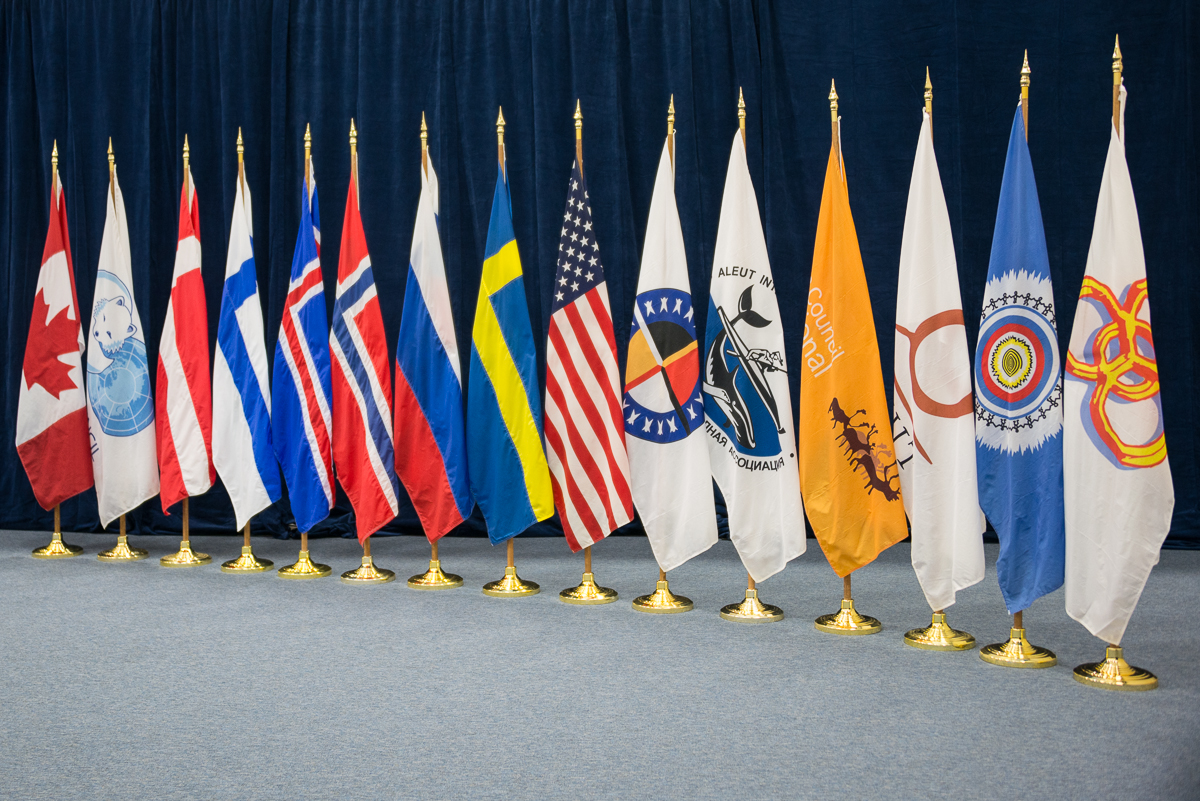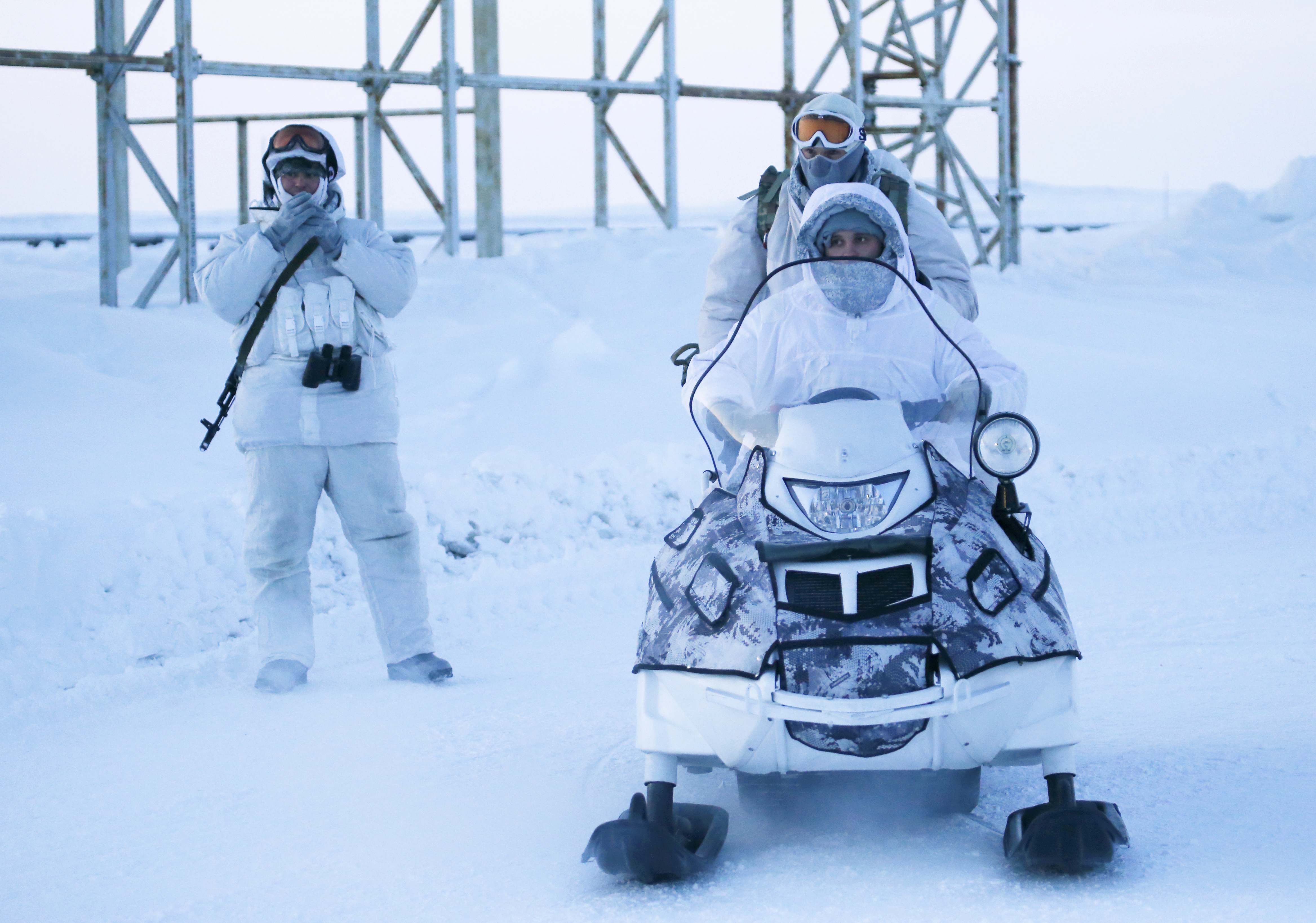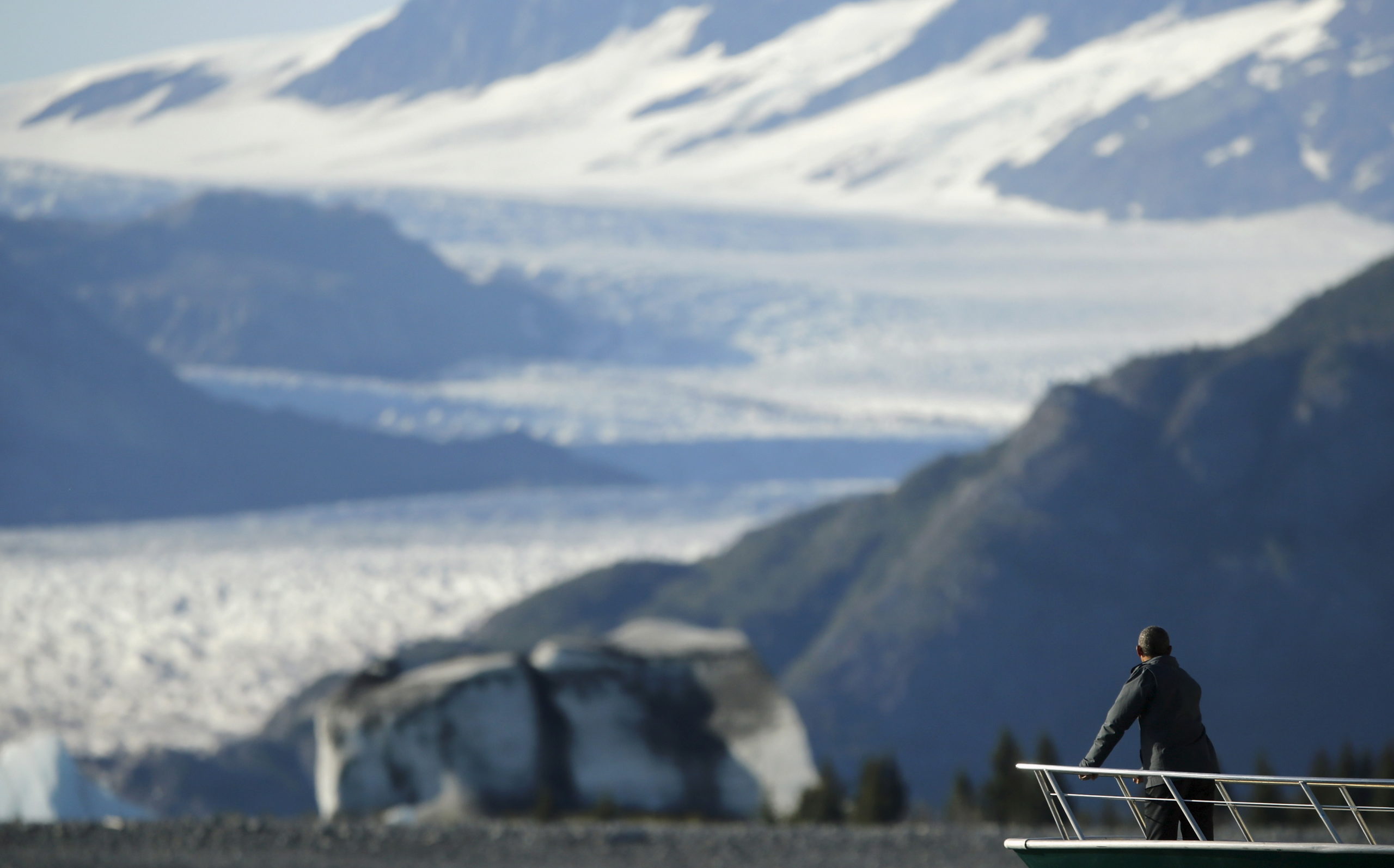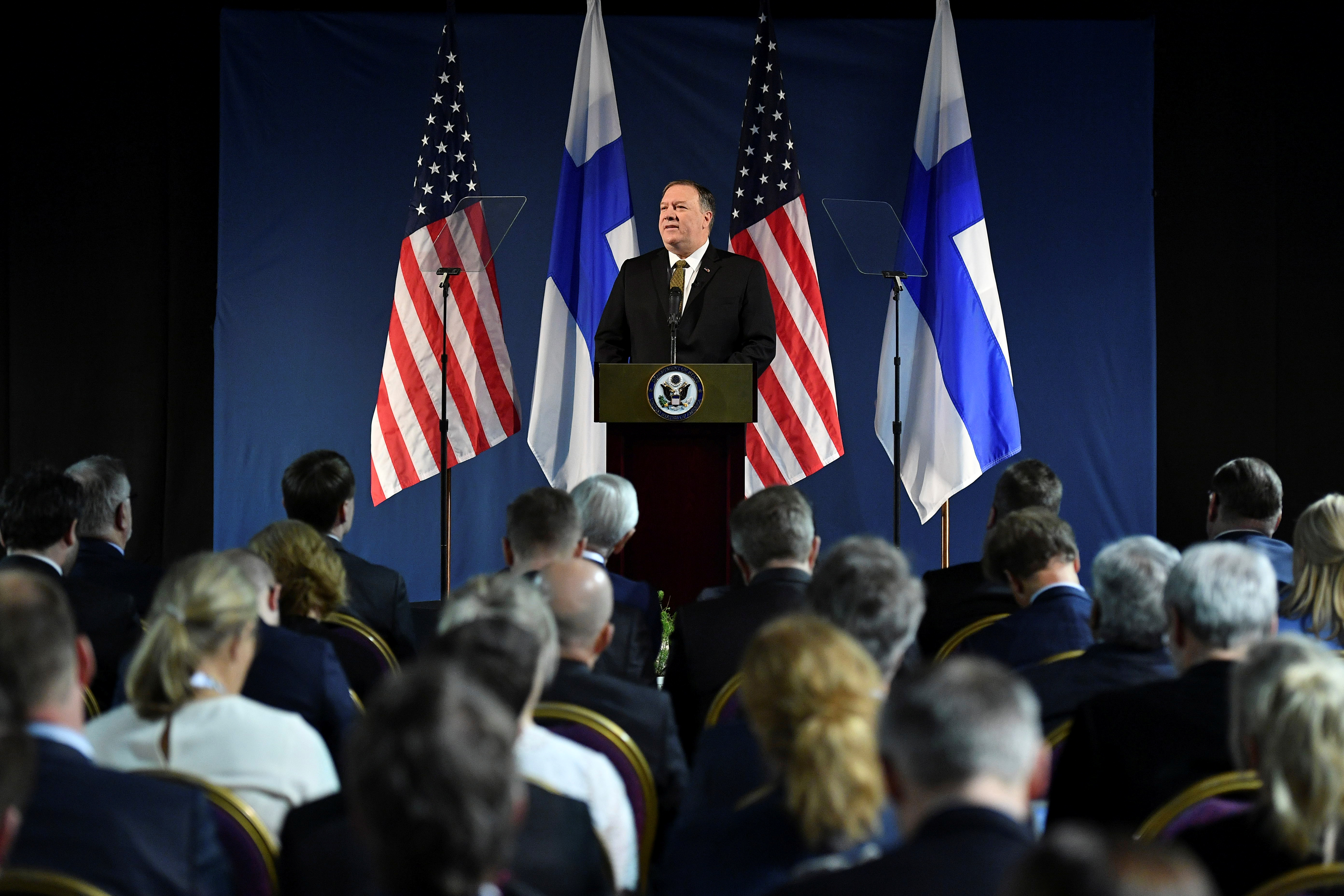Why shifting US Arctic policy to focus on climate change will be complicated
A growing focus on security concerns, and a coming Russian chairmanship of the Arctic Council could make some of President Biden's climate policy goals in the region tricky to achieve.

During the four years of the Trump administration, U.S. involvement in the Arctic Council was largely defined — at least in public — by its push to remove language about climate change.
First at the Arctic Council’s Fairbanks ministerial meeting in 2017, and then again in the run-up to the Rovaniemi ministerial meeting two years later, the U.S. representatives sought to strip climate language from the council’s joint statements. At the 2019 meeting they succeeded, scuttling a joint declaration for the first time ever and leaving diplomatic fallout that continues to affect the council.
Now an incoming Biden administration, intent on emphasizing climate action, will seek to reverse that legacy. But it won’t be as simple as just returning to the status quo, according to several experts and observers.
[How the Trump administration’s climate denial left its mark on the Arctic Council]
One complicating factor is that Russia will assume the rotating chair of the Arctic Council in May. While Russia hasn’t opposed climate change language in the Arctic Council as the U.S. did, it has major fossil fuel resources in production and development in the Arctic, and has signaled that it will focus on economic development during its two-year tenure, rather than environmental concerns.
A second is that security issues in the Arctic could take up the diplomatic time and attention that might otherwise be devoted to international climate action in the region. The Arctic Council specifically excludes security issues, but there’s been a growing push to either change its scope include them, or create a parallel forum that does. (Previous such initiatives effectively stopped functioning as circumpolar forums when Russia ceased to be included after the annexation of Crimea.)

The Biden administration’s policy ambitions in the region will need to account for both of these, experts say.
It remains critical for the U.S. to lead on climate, particularly within the Arctic Council:
“You just simply cannot ignore the climate dimension and have a robust Arctic policy,” Heather Conley, senior vice president for Europe, Eurasia, and the Arctic at the Center for Strategic and International Studies, told ArcticToday.
But Biden’s emissaries will walk a fine line between prioritizing climate change at the Arctic Council during Russia’s chairmanship, while also deescalating four years of mounting geopolitical rhetoric about conflict from the U.S.
The key to doing this effectively, says Conley, will be for political leaders to embrace the ways climate and security intersect.
“Both the Obama administration and the Trump administration got it wrong, in the sense that they both accepted the proposition of an either/or. Either it’s only climate change and we’ll ignore growing geopolitical and geostrategic developments, or we’ll only concentrate on great power competition, and we’ll ignore all of the climate dimensions of that,” Conley said.
“They have to be able to do both.”

While the Biden administration’s approach to the Arctic so far has emphasized climate concerns, his energy and environment plan highlights the “profound national security challenges” posed by rapid climate change in the Arctic, too.
The Biden administration has “made climate a huge, huge priority,” weaving it into all aspects of government at the federal level, Julie Gourley, the former senior Arctic official at the State Department, told ArcticToday. Making climate change a key element in the Arctic Council is “absolutely critical. Climate should be the absolute top priority in the Arctic Council.”
“But there’s always, I guess I’d say, a fear that things could tip more into a conflict scenario there,” she said. “It’s not likely, but there’s always talk and rhetoric in our government about the Arctic being a place for competition instead of cooperation, which is just dangerous. It’s dangerous to put that out there because the more you say it, the more you fulfill it.”
No one wants war in the Arctic, Gourley said. And even through other periods of tension, such as the Cold War, the U.S. and Russia have worked together in the region.
“Ideally, that’s the way things will continue,” Gourley said. But she worries that the defense department, and some factions of the State Department, will perpetuate the idea that the U.S. has to be prepared for war.
The Defense Department is split between “the cool heads that realize we have other higher priorities around the world and the Arctic is not a place we need to worry about too much, although we do need to be able to operate there,” she said, and “the old Cold Warriors” who are wary of Russia and China operating in the region.
“That’s the kind of rhetoric that is, I think, dangerous, if it’s allowed to perpetuate very loudly out into the world. So, keeping the messaging correct in the Biden administration is what I hope will happen, but it’ll be interesting to see, now that climate is a huge, huge, one of the very top priorities for this administration, what that’ll mean for the Arctic in particular,” Gourley said.

Previous administrations’ approaches to climate change in the Arctic and High North ranged from Bush and Trump tamping down mentions of the issue or ignoring it entirely, to Obama’s noteworthy but limited efforts, Gourley said. But Biden has signaled that “a much, much more serious approach to climate overall” that will likely carry over to the council.
There is an internal battle — “a tug of war” — within the State Department itself, Gourley said, on how to balance climate and security in the Arctic. The Bureau of Oceans and International Environmental and Scientific Affairs often focuses on the climate side of the equation, while the European Affairs Bureau presses to address potential security issues.
“The European Affairs Bureau is very, very powerful, and they usually prevail,” Gourley said, “and it certainly has designs on the Arctic Council while the Russians take the chair.”
She hopes the climate side wins, “and the ability to maintain the Council as almost 100 percent focused on climate—and the downstream effects of climate on the Indigenous people and the environment and everything else,” she said. “Keep that at the forefront and keep the security discussions and the economic discussions down in the background.”
However, those efforts may be complicated by Russia’s own interests.
“Russia’s chairmanship is not going to be climate friendly, so the U.S. is going to have to work extra hard with the Nordics and Canada,” Gourley said. “But it can work. We just need to make sure that the anti-Russia viewpoint within the State Department in the European Affairs Bureau doesn’t take hold and kind of wreck the whole two-year chairmanship by Russia and turn it into a fierce sort of combative tone.”
It’s also important for the Biden administration to distance itself from the aggressive tone of the previous four years, experts said.
With its increasingly heated rhetoric, Conley said, “the administration also caused unnecessary problems and hindered U.S. policy development in the Arctic.”
In May 2019, U.S. Secretary of State Mike Pompeo roiled the Arctic Council ministerial meeting for refusing to sign a joint declaration that included the phrase “climate change.”
More recently, in several tweetstorms before he departed office on Jan. 20, Pompeo doubled down on his hard-nosed view of security issues in the Arctic, taking aim in particular at Russia and China. It’s “fine to worry about possible climate change” in the Arctic, he said — a sharp change in direction from his statements in Rovaniemi — but “we’ve got to focus above all on Russian and Chinese threats.”

Pompeo’s tweets were “both confused and confusing,” Klaus Dodds, a professor of geopolitics at Royal Holloway University of London, told ArcticToday.
Pompeo frequently referenced a great power competition narrative in Arctic geopolitics and governance, which conflicted with “the story that Arctic states have been telling themselves for several decades, which is that the Arctic is a success story, and the Arctic Council becomes emblematic of this success story,” Dodds said — the idea that the Council is a “shining example of circumpolar cooperation and goodwill.”
The timing of Pompeo’s statements, as Russia prepared for the chairmanship of the Arctic Council, was likely “not coincidental,” Dodds said.
During the Trump administration, the Arctic was “framed as a space of threats — in terms of China, in terms of Russia — but there hasn’t really been that much talk about other issues,” Ingrid Medby, senior lecturer in political geography at Oxford Brookes University, told ArcticToday.
Rejoining the Paris Agreement and “just generally engag[ing] with climate change discussions” signals an important shift in the U.S. approach to the Arctic, Medby said.
“There is now a lot of hope that Biden will, in some ways, allow us to return to that more collaborative engagement in the Arctic as well, and actually move things forward,” she said. “An agreement when there is the ministerial in May this year would be great.”
The back and forth between the two approaches of recent U.S. administrations has put the country “woefully behind” in capabilities and resources, Conley said. Instead, a “bipartisan and durable strategy for the Arctic” should endure throughout each administration, “rather than swinging the pendulum back and forth every four to eight years.”
Speaking at a virtual Arctic Circle conference in October, Senator Lisa Murkowski, a Republican from Alaska, said that, while the Obama administration “almost singularly focused on climate change — and perhaps to the detriment of almost everything else, including the local economy,” and the Biden administration shows signs of following suit, the Trump administration made a grave error by ignoring climate change altogether.
“You cannot just scrub Arctic policy directives of the term ‘climate change’ and suggest that we don’t have to deal with this — that it does not exist,” she said in her October remarks, in an apparent reference to Pompeo’s Rovaniemi declaration. “While climate change cannot be the sole focus of an Arctic policy, it has to be recognized, it has to be considered, in any comprehensive policy.”
On the question of whether the U.S. should prioritize climate or security in the Arctic, Murkowski said, “Why is it ‘either/or’? Why is it not ‘and’?” In a more encompassing view—”not just national security, but environmental security, economic security, food security, cultural security.” Climate change and security fit together carefully, she said.